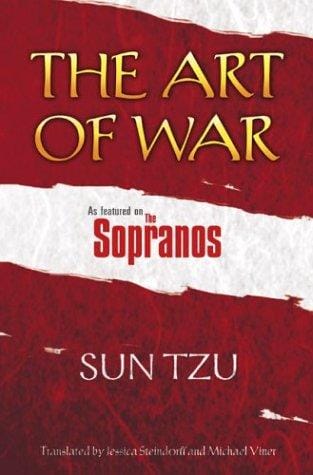Mastering Strategy: Lessons from Sun Tzu's Art of War
Explore Sun Tzu's Art of War, its core principles, and practical ways to apply ancient strategic wisdom to today's business, leadership, and life.

Introduction
Written more than 2,500 years ago, Sun Tzu’s Art of War remains one of the most quoted and consulted texts on strategy ever produced. Although originally intended as a military treatise, its concise aphorisms on preparation, positioning, and psychological advantage have transcended the battlefield to shape modern thinking in business, politics, sports, and personal development. This article explores the enduring lessons of the Art of War and shows you how to apply its wisdom to today’s competitive arenas.
Who Was Sun Tzu?
Sun Tzu, or Sun Wu, was a Chinese general and philosopher who lived during the Spring and Autumn period (approximately 544–496 BCE). Very little is known about his personal life, yet the strategic insights captured in his thirteen-chapter manuscript speak volumes about his intellect. Rather than glorifying brute force, Sun Tzu emphasized intelligence, adaptability, and the economical use of resources—principles that continue to resonate in every field where scarce assets must be leveraged for maximum effect.
Core Principles of the Art of War
Know Yourself and Your Enemy
Perhaps the most cited line in the entire book states: “If you know the enemy and know yourself, you need not fear the result of a hundred battles.” Sun Tzu teaches that self-awareness and competitive intelligence create a decisive edge. In a business context, this means conducting honest internal audits while thoroughly researching competitors, customers, and market conditions.
Win Without Fighting
Sun Tzu argued that “the supreme art of war is to subdue the enemy without fighting.” Rather than engaging in costly conflicts, he advised leaders to seek alliances, exploit timing, and leverage influence to achieve objectives with minimal resistance. Modern negotiators adopt this mindset when they craft win-win deals or use data to persuade stakeholders before formal showdowns can occur.
Strategic Positioning and Timing
The general emphasized occupying advantageous ground and striking only when conditions are favorable. He wrote, “Water shapes its course according to the nature of the ground over which it flows.” Flexibility and terrain analysis translate today into market positioning: launching a product when customer need peaks, or entering geographic regions with ripe demand and weak competition.
Deception and Information Advantage
“All warfare is based on deception,” Sun Tzu warned. Misdirection, surprise, and secrecy degrade an opponent’s decision quality. In contemporary terms, this principle underscores the power of proprietary knowledge, stealth marketing, and unpredictable innovation cycles that keep rivals off balance while you capture mindshare.
Resource Economy
Contrary to popular belief, Sun Tzu was frugal with troops and supplies. He wrote of “the cost of prolonged campaigns” and urged commanders to conserve strength. For leaders today, the message is to optimize budgets, automate repetitive tasks, and deploy human capital where it delivers the highest strategic return.
Applying the Art of War to Business
Corporate strategists routinely cite Sun Tzu when crafting competitive plans. Market research acts as reconnaissance; SWOT analysis mirrors battlefield intelligence; and first-mover advantage is the modern equivalent of seizing high ground. By understanding customer pain points (your “enemy”) and aligning core competencies (“yourself”), companies can capture value before rivals mobilize. The concept of winning without fighting appears in customer-centric models that convert potential adversaries into partners through co-branding or licensing agreements.
Timing also plays a critical role. Consider how tech firms delay product releases until hardware, supply chains, and consumer readiness converge—just as Sun Tzu advised waiting for “the right moment.” Meanwhile, lean startups embody resource economy by minimizing overhead and validating demand before scaling up.
Leadership Lessons
Effective leaders, like Sun Tzu’s ideal generals, create clarity of purpose, adapt to change, and inspire confidence. The Art of War underscores the importance of moral authority (called “Dao” in the text), organizational discipline, and clear communication. Modern executives who cultivate trust, articulate vision, and encourage fluid organizational structures mirror these teachings, achieving cohesion that outperforms larger but less coordinated competitors.
Deception in leadership is not about unethical manipulation; rather, it involves strategic narrative framing. By carefully choosing what information to release and when, leaders can shape market expectations or rally teams without exposing weaknesses to adversaries.
Personal Development and Life Strategy
Beyond boardrooms, the Art of War offers guidance for everyday challenges. Knowing yourself involves candid reflection on strengths, weaknesses, and emotional triggers. Knowing the enemy could mean understanding a difficult project, a tough exam, or even personal habits that sabotage goals. Winning without fighting may manifest as conflict resolution through empathy and negotiation rather than confrontation.
Individuals can apply resource economy by prioritizing tasks and delegating or automating low-value activities. Deception can be recast as privacy—guarding your goals until they are ready to be unveiled, thus preventing premature criticism that could derail momentum.
Common Misconceptions
Because the word “war” dominates the title, many readers assume Sun Tzu advocates aggression at all costs. In fact, he champions restraint, intelligence, and humane treatment of both soldiers and civilians. Another misconception is that the Art of War is only for large-scale enterprises; freelancers, students, and community leaders can benefit equally from its focus on preparation and adaptability.
Finally, some critics claim the text is too ancient to be relevant. Yet the accelerating pace of change in today’s digital landscape makes Sun Tzu’s warnings about rigidity and complacency more pertinent than ever.
Conclusion
The Art of War endures because it distills strategy to universal truths: understand context, leverage advantage, and act decisively yet economically. Whether you are guiding a multinational corporation, leading a small team, or steering your own life’s course, Sun Tzu’s timeless wisdom can help you anticipate obstacles, outmaneuver competition, and achieve victory with minimal friction. Embrace these principles, and you will not just survive in a hostile environment—you will thrive.



